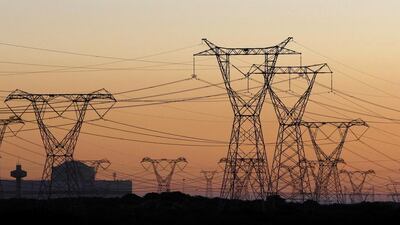South Africa remains the only nuclear energy producer in Africa, but soon it may be joined by others across the continent in pursuit of a dependable energy source.
Now, the continent's sole nuclear power plant is the Koeberg plant, which provides half of Cape Town's power needs. Completed in 1984, the facility was a cover for the former apartheid government's scheme to develop nuclear weaponry as it fought Soviet backed liberation movements.
In total, six nuclear devices were built. These were dismantled as the apartheid era wound down, and South Africa is the only country to have developed nuclear weapons and then voluntarily given them up later.
This legacy of nuclear for peace has been maintained ever since by the African National Congress, which has ruled since Nelson Mandela was inducted as the first democratically elected president in 1994.
Other African countries are now looking at nuclear to provide for growing energy needs. Last year, Nigeria, the continent’s biggest economy, said it would have at least two reactors operating within 10 years.
“Africa is heavily dependent on hydropower that is at the mercy of rainfall,” said Kelvin Kemm, a nuclear physicist and chief executive of Nuclear Africa. “In times of drought dams are unreliable, and this is where nuclear can fill the gap.”
In East Africa, Kenya has advanced plans to develop nuclear energy. Last September, the Kenya Nuclear Electricity Board signed an agreement with China General Nuclear to explore the construction of a plant based on the Hualong 1 reactor design.
Only three out of 10 Kenyans have access to electricity, and the country is building out solar, wind and geothermal energy sources. The country intends to be energy-sufficient within 15 years and regards nuclear as part of the mix.
Kenya is perhaps the most energetic in its pursuit to be the next African state to produce nuclear energy; last year it held its third conference on the topic, and it has sent dozens of physics students to study in the US and South Korea.
"We need a dependable, reliable and continuously available system," energy principal secretary Joseph Njoroge told the conference, according to Kenya's Business Daily.
“Solar and wind are good sources and renewables. But they are only available at certain times.”
African countries also produce a significant amount of uranium, the fuel source for nuclear plants.
Niger in the north, South Africa and neighbouring Namibia between them supply almost 20 per cent of the current world demand.
business@thenational.ae
Follow The National's Business section on Twitter

